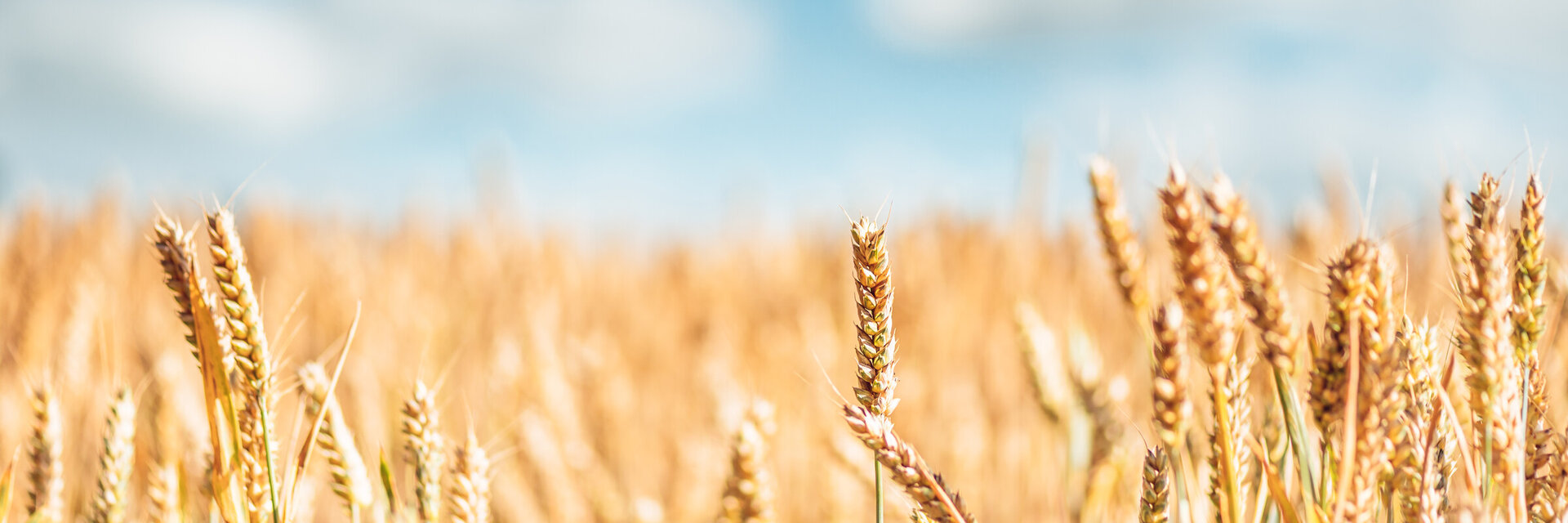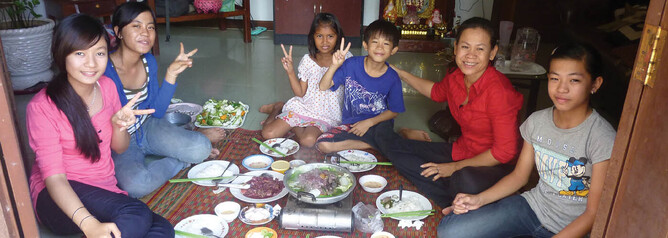As I attempt to prepare myself to leave Cambodia, I’ve been trying to recall what it was like in my first year here. It is only in looking back (and in listening to what other people comment on) that I realise things that once seemed new are now ‘the norm’ — or at least, as close to the norm as they can be for a non-Cambodian. I’m sure there are many things that I’m not even aware of, but I’m going to give you a snapshot of just a few ways I’ve had to adapt to living in Cambodia.
Saving face
We all do this to some degree, but it is something that you quickly come up against here. I remember being so annoyed in my first year when I thought there was a clear agreement for a tuk-tuk driver to come and pick me up from a friend’s place, only to be left stranded at 9pm. The tuk-tuk driver was someone I knew, and he avoided me for a few days afterwards. Once we did talk again, he blatantly lied about why he hadn’t come to pick me up. I knew he was lying. He knew I knew he was lying. But he’d rather lie after the fact than tell me he couldn’t come and collect me at 9pm. I am no longer surprised when this sort of thing happens, but I’m not saying I like it; I would still prefer someone to tell me ‘no’ up-front. However, this part of the culture must be taken into account.
Language
I’m afraid my language learning has been an utter failure. After 10 years, I still can’t have a proper conversation with someone. There really is a reason why you’re supposed to dive straight into language learning! Not doing it straight away and not persevering with it is one of my biggest regrets. I have learnt enough that it is still helpful to some extent though. I may not be able to have a ‘real’ conversation, but I’ve learnt enough to understand some of the reasons Cambodians speak English the way they do. For instance, there is only one word for ‘he’ and ‘she’, so when they get he and she mixed up in English, it doesn’t bother me at all. A lot of Khmer words are said with the last sound ‘swallowed’, so when they say a word in English that has no end sound, I can still understand what they’re trying to say and it doesn’t bother me in the least. (It REALLY bothers some people though!) I’ve also come to love the fact that it doesn’t matter in the least if you don’t remember someone’s name — I love walking into a café and being called ‘bong’ (short for older sister) and even prefer that to “Hello, Fiona.”
Questions
While we’re talking about older sisters…one of the first things Cambodians ask you is your age. In Australia, that’s not a polite question to ask, especially up-front. Once I understood the reason for them asking it here though, it made complete sense. Because everyone is addressed as older or younger, it is essential to have an age to compare to. Another common question is “Where are you going?” To reply, “None of your business!” is not an option! I used to get so annoyed by being asked this question multiple times a day, until someone explained to me that during the Khmer Rouge time, it became a question that everyone used. Once the answer had been given, information could be passed on regarding whether there were a lot of soldiers that way, or there were landmines on that path now, or even just to let someone know there was a better path to take. Once I understood the WHY of the question, it ceased to annoy me, even though the first two reasons don’t really apply now. The other question which took a long time to get used to was “How much did it cost?” I don’t think I’ve fully adapted to that one. I feel free to ask it here in Cambodia, but I don’t think I ask it in Australia (maybe someone will pull me up on that though...)
The attitude of Karma
Cambodians will say “I feel pity them” when they see someone who is suffering. And I’m sure they do. The Cambodian Christians will reach out and help in very practical ways. Non-Christians will give a little money to beggars. However, for the most part, there’s a general world-view that this person must have done something in a previous life and they are now having to face the consequences of that — somehow, they must deserve it — there’s nothing that can be done about it. I’m convinced this is one of the reasons people all stand around and take photos at an accident site. (Having said that though, I have had a few moto accidents, and Cambodian bystanders have always rushed to help me. I will probably never understand all the complexities of the Cambodian/Buddhist world-view; I’m just trying to piece things together in my mind.)
Darkness and oppression
I have always been very aware of the spiritual world, but living here, I certainly ‘feel’ the spiritual darkness more than in Australia. And I’m not only talking about Cambodian settings — there are a few places in town run by expats that have a dark heaviness about them. There are certain times of the year when I am more aware of the darkness than others. I know God is stronger, but there is a real problem sometimes with dark, spiritual dreams. I only remember that happening a few times in Australia.
Customer service
I have (for the most part) become used not leaving a gap when lining up to be served. Lining up to be served is a foreign concept to start with! It never ceases to amaze me that people in customer service don’t lose their cool with the amount of times they’re interrupted while serving someone. Okay, full disclosure here: if you want to see me at my worst, follow me into a Cambodian print shop. I don’t know what it is about this particular location, but it’s the only place I completely lose my patience and walk out of there on a regular basis. I can have people cut in front of me in any other shop and I remain patient. The print shop though?! I feel my stress levels rising within a minute of me entering the shop and not being served in the way I think it should happen! Ha! I guess no one ever COMPLETELY loses their way of thinking on how things should be done.
Food and hospitality
Cambodians will ask “Have you eaten yet?” If the answer is no, you will be invited to eat with them. Whether they have a lot of food or only a little, hospitality is extended. They don’t stress about what you’ll think of their house, what you’ll think of their cooking; it’s just a basic need that they’re offering to meet. I have much to learn. They are also experts at eating all that can be eaten. I still can’t identify half the leaves for sale in the market. There are also leaves taken from vines growing wild and added to soup. Whether it’s because they’ve always done that or whether it’s because of the shortage of food during the Khmer Rouge era, they can make a little go a long way and eat all sorts of things at which we would turn up our noses. I don’t always like the taste, but I do admire their resourcefulness and their horror at wasting food. Something I DO like the taste of though is pork and rice for breakfast. I spent my entire life up until coming to Cambodia thinking that I didn’t like breakfast. Then I tried pork and rice for breakfast. I LOVE breakfast! Noodles are also good for breakfast. As is soup. Or coconut waffles cooked on the side of the road.
Attitude
I always thought I was pretty good at being thankful. Ha! I realised very quickly that I was too quick to complain. I still am. Power outages during Hot Season? Complain. (Even though many Cambodians in the villages don’t even have electricity.) Having to keep a bucket of water in the bathroom for when there’s no water? Complain. (Even though a lot of Cambodians still bathe with a bucket outside.) Not being able to be with my family when I want to be? Complain (at least to myself). I truly am blessed to have freedom and choice as to where I live, what job I take, whether I remain single or not; to not have to use all my salary to support my parents, siblings, nieces and nephews; and to have a home with space, electricity and running water.
Toilets
Always carry tissues with you. A skirt is easier if you know you’ll be using ‘squatty-potties’ that day. Get to know, as quickly as possible, the restaurants in town that have the best toilets. The ‘bum-gun’ (hose) is the best invention ever!
Corruption and power trips
At every level — it’s horrible and I hate it. However, it’s a part of life and you’d best get used to it at least to a small degree. The black and white “Just say no/don’t give up” is the ideal but is not always possible.
Driving
When I first arrived, I was terrified to get on a moto. There seemed to be no road rules, just chaos — not to mention I had to switch to the right lane. How things change! I now feel more comfortable driving a moto in Siem Reap than I do driving a car in Australia! My moto is one of the things I know I’ll miss when I leave here.
Other cultures
As well as adapting to Cambodia, I’ve had the added fun of adapting to other cultures as well. My closest friends here are American and Swiss. What a privilege to mix with people from other cultures! The words I use change (mostly because it’s easier to do that than to stop and explain something every few sentences). The speed at which I speak has changed — even I’m surprised sometimes at how slowly I’m speaking! The words have become longer — bicycle instead of bike, University instead of Uni, etc. I’ve loved incorporating American Thanksgiving celebrations and Swiss bread and fondue for special occasions. I love being surrounded by different accents and languages and am always surprised in Australia, when I can understand everyone around me (how are you supposed to switch off and read a book in a café with all those distracting conversations?!).
Perhaps one of the most difficult changes, and one I still can’t get used to, is the constant stream of goodbyes. Missionaries come, relationships go deep quickly, and then goodbye. For me, the goodbyes here are harder than the goodbyes in Australia. Soon it will be my time to leave. I’m grieving my departure, but I’m also grieving for my friends because I know what it’s like to be on the ‘staying’ side.
I’ve tried to include the ‘mundane’ and the more serious in my list of changes and adaptations. I’m sure there are many other things I could add, some of which won’t be apparent until I’m back in Australia, trying to change and adapt to living in Australia. Maybe I can make a whole new list then!
For hundreds of thousands of people living in remote villages or city slums, escaping the coronavirus is extremely difficult. Socially isolating is not realistic when people are jammed together in poor communities and the next-door neighbour is barely a metre away. However, by teaching them the importance of regularly washing their hands and practising hygiene measures, they can cut down on the transmission of the virus.
In the small town of Paulette, Haiti there have already been seven confirmed cases of coronavirus and many more are expected as there is a high risk of spreading the virus. Our goal is to help each family set up a simple hand washing process. There is no running water inside their homes so we want them to develop a system that they can implement rather than us designing it for them. This way they are invested in it and are more likely to use it. Often a poor family can use an available container like a water jug or milk bottle to use with the clean water and soap that we will provide. This accessible handwashing system will enable many of them to escape contracting this deadly disease.
Most people live from hand to mouth, meaning the work they do each day pays for the food they need for that day. Asking people to stay home means they can’t eat that day because they would have no income, and they don’t have any savings to help in times of crisis. But with clean water and soap and practising healthy hygiene, it may help curb the pandemic among the poor as they strive to provide some meagre food for their families.
Because many poor families live in multi-generational houses, it is almost impossible for them to implement social distancing. Often there are grandparents and several of their children with their extended families all living together in one place. This makes it easy for the virus to spread.
Bright Hope is enabling pastors and elders to travel around among destitute families delivering clean water, soap, disinfectant and other hygiene supplies. These church leaders are talking with all the family members about how important it is for them to consistently wash their hands. They are helping each family decide how to set up a simple handwashing station outside their home in order to prevent being infected by the coronavirus or passing it on to others.
This life-saving help is happening in Haiti, Bolivia and Uganda. The goal is to have as many poor families as possible frequently washing their hands and practicing other preventative hygiene measures.
Gifts sent to AMT will be used to pay for the purchase of clean water, soap and disinfectant and also for the expenses of the elders and pastors to visit poor families. This is a wonderful opportunity for us to show the love of Jesus in a very practical way to hundreds of needy people during this crisis.
By Fiona Thomas


